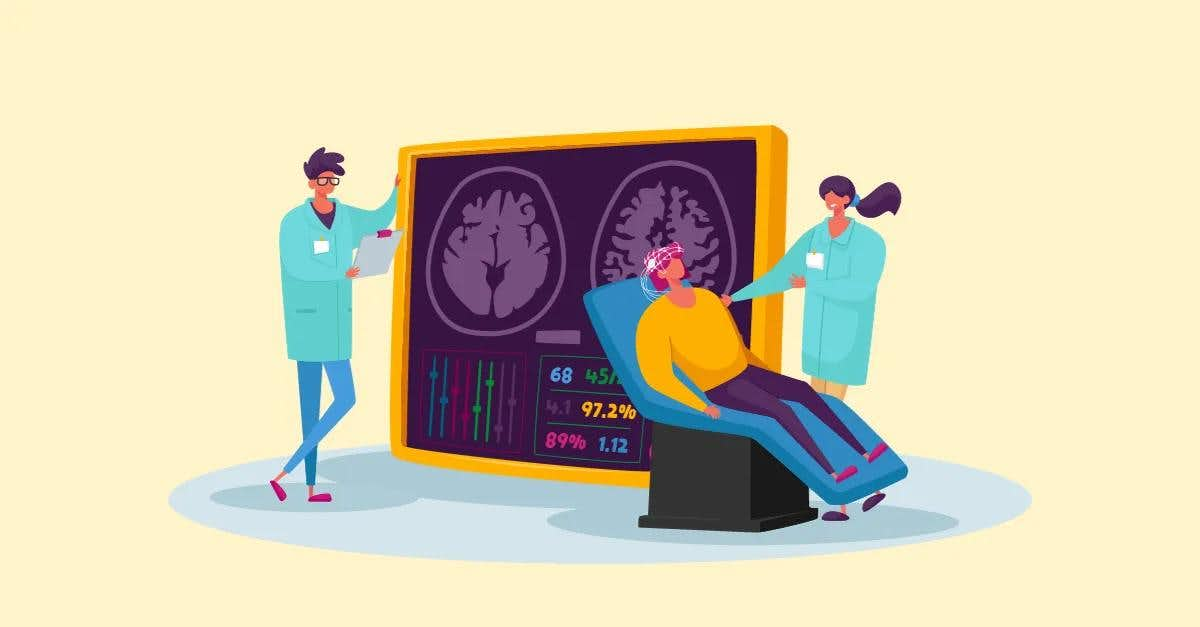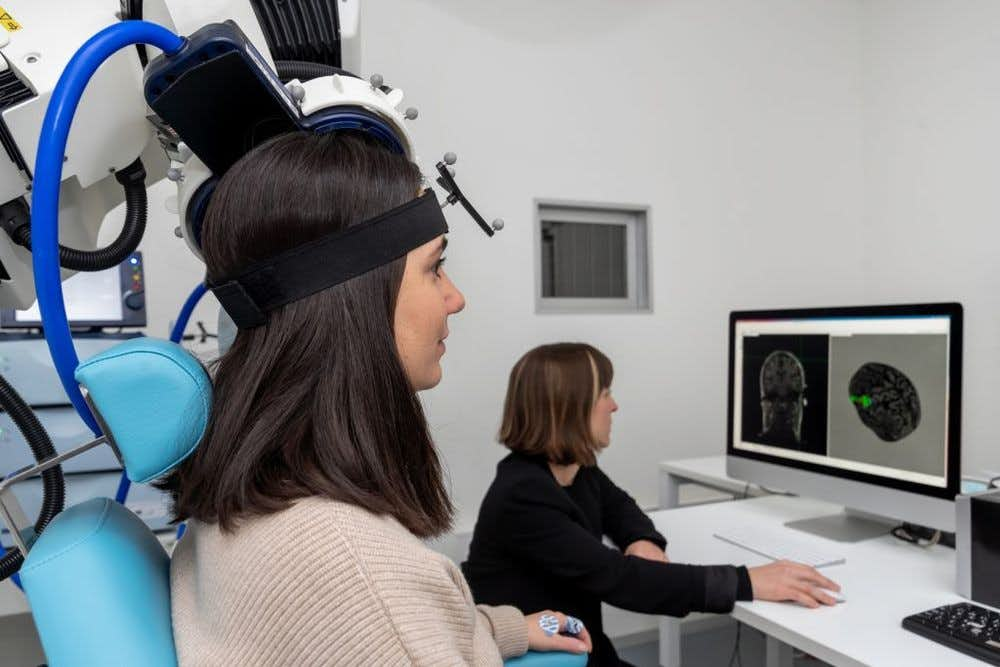May 21st, 2024

Depression is one of the most common mental health disorders in the world, and Transcranial Magnetic Stimulation (TMS) is an innovative and increasingly popular treatment option designed to alleviate symptoms of depression.
Transcranial magnetic stimulation (TMS) is a non-invasive therapy used to improve the symptoms of psychiatric disorders like depression. Let’s take a deeper dive at how TMS works and whether it is a reliable treatment option for certain psychiatric disorders.
TMS uses magnetic fields to induce an electrical current at specific areas within the brain. When experiencing a mental health condition or a mood disorder, the brain’s ability to regulate emotions may not function at full capacity. This can result in signals along the neural pathways that normally regulate mood, emotions, and/or thoughts not working properly.
TMS helps to alleviate symptoms of different psychiatric disorders by modulating activity in cortical regions and associated neural circuits. In simpler terms, this means TMS treatment works by sending short magnetic pulses to exactly the areas of the brain one wants to treat – stimulating and activating neural pathways and restoring the emotional control center.
The magnetic fields utilized with TMS therapy are comparable to those used in magnetic resonance imaging (MRI). With an MRI, the magnetic fields cast a wide net as opposed to the small net that TMS casts. TMS focuses the magnetic fields on specific areas of the brain.
TMS was FDA-approved for treatment-resistant depression in 2008. Since approval for treatment-resistant depression, TMS has also been approved for the treatment of OCD. To qualify for TMS therapy, one would need to have had an adequate trial of psychotherapy (talk therapy) and pharmacology (SSRIs, SNRIs, etc.). This therapy is reserved for patients who have failed one to two different antidepressant medications.

Here are the pros and cons of TMS therapy that you should know about.
The most seen side effects in TMS are mild and transient. Along with this, TMS is considered non-invasive as there are typically no systemic side effects seen with treatment. During treatment, patients may experience some scalp discomfort which would subside once treatment is over.
A common side effect seen with treatment is headaches. This can be thought of as “muscle soreness” one may see as they first start at the gym. Over time, patients acclimate to treatment and this soreness will begin to subside. This side effect can be mitigated with the use of over-the-counter analgesics.
Many research studies demonstrate around 50-60% of patients with treatment-resistant depression will have a clinically significant response. Around half of the 50-60% of patients will find remission with the remaining half still seeing a clinically significant response.
Multiple randomized trials have consistently demonstrated that repetitive surface cortical TMS is superior to placebo TMS for treatment-resistant depression. Placebo treatment involves treatment that mimics the therapy but has no therapeutic effect.
TMS therapy involves 36 treatments with one treatment a day for 6-9 weeks. While this may sound like a lot, patients spend 30 minutes a day in treatment. After treatment, patients can resume their daily routine. TMS therapy does not involve any anesthesia and allows patients to continue with their day-to-day activities even on treatment days.
While there are many advantages to TMS therapy, there are some disadvantages as well.
One of the disadvantages of TMS is making sure one qualifies for the treatment via insurance coverage. TMS therapy can be costly out of pocket and is not attainable for most people. To qualify for treatment, patients must have failed to meet remission from psychotherapy and pharmacology.

TMS therapy comes into play when patients are unable to find remission with psychotherapy and pharmacology. When a patient finds themselves here, they may feel overwhelmed with their symptoms and find themselves looking for other options. At this point, patients have options to consider for treatment. An option aside from TMS includes electroconvulsive therapy (ECT).
ECT is a therapy indicated for those with treatment-resistant depression. In addition to this, ECT is also a treatment modality for bipolar disorder, schizophrenia, schizoaffective disorder, catatonia, and neuroleptic malignant syndrome.
ECT involves an electric current which is used to produce general cerebral seizures under general anesthesia. With ECT, patients must have anesthesia which makes the process more invasive than TMS. ECT treatments are typically given multiple times a week for 3 – 4 weeks.
TMS is a non-invasive, evidence-based therapy for treatment-resistant depression which is an excellent treatment option for patients who are experiencing depressive symptoms and are not finding full alleviation of these symptoms after trialing psychotherapy and pharmacology. Clarity Clinic is beyond thrilled to be able to offer TMS for depression at our Loop and Arlington Heights locations!
Transcranial Magnetic Stimulation (TMS) is a legitimate and scientifically validated treatment for depression and other mental health disorders. Approved by the FDA in 2008, TMS therapy has undergone extensive clinical trials and research that demonstrate its effectiveness in treating patients who do not respond to traditional antidepressant medications.
If you have treatment resistant depression, speak to one of our psychiatrists at Clarity Clinic to see if TMS therapy is a good option for you.
Why TMS is Worth Trying:
Our TMS clinics in Chicago offer the best TMS therapy near you! Experience the forefront of depression treatment with our leading TMS therapy for depression. At our TMS clinics, we are dedicated to providing top-tier Transcranial Magnetic Stimulation (TMS) services, utilizing advanced technology and techniques to effectively manage and alleviate symptoms of depression.
Our expert team is committed to delivering personalized care in a supportive and compassionate environment, ensuring the best possible outcomes for each patient. Don’t let depression control your life any longer. Visit us to discover how our TMS treatment can make a significant difference for you. Contact us today to schedule a consultation and take the first step towards a brighter, healthier future.
Book TMS Consultation
Related Readings:
Resources:
Our Services
Virtual/Online CarePHP and IOPAdult PsychiatryChild & Adolescent PsychiatryAdult TherapyChild & Adolescent TherapyCouples CounselingFamily TherapyGroup TherapyPsychological TestingTranscranial Magnetic Stimulation (TMS)